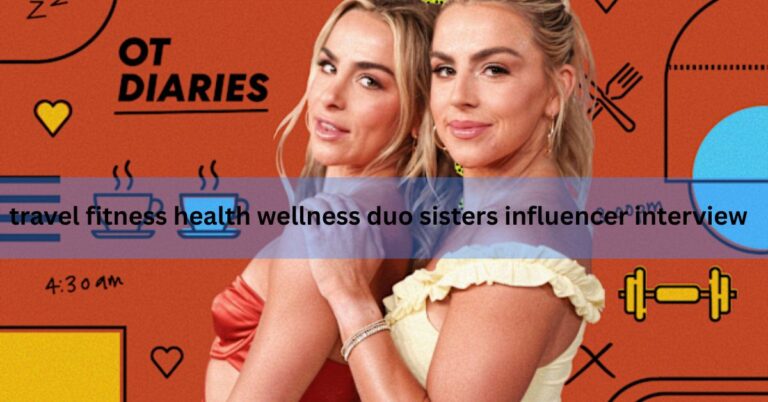Is Health Science Or Biology Better For Medical School – Find Your Ideal Major!
Choosing the right major before applying to medical school is an important decision. Two popular options for students who want to become doctors are health science and biology. But which one is better?
The answer depends on your goals, interests, and the medical school requirements. This article will compare both majors in simple language to help you decide which is the better choice for you.
What Is Health Science?
Health science is a broad field that focuses on health, wellness, and disease prevention. It includes many topics like:
- Human health
- Nutrition
- Public health
- Healthcare systems
- Health education
- Disease and treatment
- Healthcare technology
In health science programs, students learn how the body works, how to promote health, and how healthcare services are delivered. Some programs also include training in communication, ethics, and patient care.
What Is Biology?
Biology is the study of living organisms. It covers a wide range of topics such as:
- Cells and genes
- Animals and plants
- Human anatomy
- Evolution
- Microbiology
- Physiology
- Biochemistry
A biology degree helps students understand life at the cellular and molecular level. This knowledge is very useful for understanding the science behind medicine.
Similarities Between Health Science and Biology:

Both health science and biology can prepare you for medical school. Here are some things they have in common:
Pre-med Requirements
Both majors can include the courses medical schools require, like:
- General biology
- Chemistry (general and organic)
- Physics
- Math and statistics
- English or writing
Science Focus
Both programs involve studying science and the human body.
Lab Work
Students in both majors often take labs and get hands-on experience.
Bachelor’s Degree
Both lead to a bachelor’s degree, which is needed before applying to medical school.
Differences Between Health Science and Biology:
Now let’s look at the key differences between the two majors:
1. Course Content
- Health Science
Focuses more on health promotion, disease prevention, healthcare delivery, and sometimes public health or health policy. - Biology
Focuses more on scientific theory, lab skills, and understanding how living things work from the inside out.
2. Depth in Science
- Biology dives deep into subjects like genetics, microbiology, and biochemistry.
- Health Science may cover these topics too, but usually not in as much depth.
3. Career Flexibility
- Health Science is good for careers in public health, health education, or healthcare management if you decide not to go to medical school.
- Biology prepares students for lab research, biotechnology, or other science-based careers.
4. Learning Style
- Biology may involve more memorization, lab reports, and scientific problem-solving.
- Health Science often includes real-world applications, case studies, and understanding healthcare systems.
Which Major Do Medical Schools Prefer?
Here’s the good news: most medical schools do not prefer one major over the other. What they care most about is:
- Taking the required courses
- Having a high GPA
- Scoring well on the MCAT
- Gaining clinical experience
- Showing leadership and volunteering
- Having a strong personal statement
So, whether you choose health science or biology, what matters is how well you do in your classes and how well you prepare for medical school.
Pros and Cons of Health Science for Medical School
Pros:
Real-World Health Knowledge
You learn about healthcare delivery, public health, and patient care, which can help in your future as a doctor.
Career Options
If you don’t get into medical school, you can still work in healthcare with a health science degree.
Holistic Understanding
You may learn about ethics, policy, and community health, which are important for doctors.
Cons:
Less Science Depth
You might not get as much detail in subjects like chemistry or physics, unless you choose electives.
MCAT Challenges
Since the MCAT includes topics like biochemistry and molecular biology, you’ll need to make sure your health science program includes these.
Pros and Cons of Biology for Medical School:
Pros:
Strong Science Background
You’ll be well-prepared for the MCAT and medical school science courses.
Lab Experience
You’ll gain valuable research and lab skills.
Medical School Fit
Biology aligns closely with what you’ll study in medical school.
Cons:
Narrower Career Options Without Further Study
If you decide not to go to medical school, your career choices might be limited unless you go into research or get more training.
More Theoretical
Some students find biology too focused on theory and less connected to real-world health care.
Also Read: Is Gin Good for Health – A Comprehensive Look at the Evidence!
Choosing the Right Major: Questions to Ask Yourself
To decide which major is best for you, ask yourself these questions:
1. Do I enjoy deep science learning?
If you love learning about cells, molecules, and genetics, biology might be the better fit.
2. Am I interested in healthcare beyond just medicine?
If you care about public health, health systems, or health education, health science could be ideal.
3. Will I take all the required courses for med school?
Make sure your major includes (or allows you to add) courses like:
- Biology
- Chemistry
- Physics
- Biochemistry
- Psychology and Sociology (helpful for the MCAT)
4. Do I want other career options if I don’t go to med school?
Health science might offer more alternative career paths in healthcare.
5. How competitive is the program?
Some biology programs can be very tough, which could affect your GPA. If you think you can do better in health science and still take the right courses, that might be the smarter choice.
Real Student Examples:
Let’s look at two made-up student stories to show how both paths can work:
Maria – Health Science Major
Maria loves working with people and wants to understand healthcare from many angles. She majors in health science but makes sure to take biology, chemistry, and physics courses. She also volunteers at a hospital and does research in a public health lab. Her GPA is strong, and she does well on the MCAT. She gets accepted into medical school.
James – Biology Major
James is passionate about genetics and anatomy. He majors in biology, takes all required pre-med courses, and works in a biology lab on campus. He also volunteers at a clinic. His science background helps him score high on the MCAT. He also gets accepted into medical school.
Conclusion: Both students took different paths but reached the same goal.
Tips for Success No Matter What You Choose:

- Meet With an Academic Advisor: They can help you plan your courses and stay on track for med school.
- Use Electives Wisely: If your major doesn’t cover a required course, take it as an elective.
- Get Clinical Experience: Volunteer, shadow doctors, or work in a healthcare setting.
- Prepare Early for the MCAT: Start studying at least a year before you plan to apply.
- Keep Your GPA High: Medical schools are competitive, so aim for strong grades.
- Join Clubs or Organizations: Pre-med clubs can offer support, events, and networking.
Final Verdict: Which Is Better?
There is no one-size-fits-all answer. Here’s a summary to help you decide:
| Criteria | Health Science | Biology |
| Focus | Healthcare systems & health | Deep scientific understanding |
| Science Depth | Moderate | High |
| Career Flexibility | High (healthcare roles) | Moderate (mostly research/science) |
| MCAT Prep | Depends on electives taken | Strong preparation |
| Medical School Fit | Good, with right courses | Excellent |
Choose health science if:
- You’re interested in the healthcare system, not just science
- You want broader career options
- You’ll add science electives as needed
Choose biology if:
- You love science and want deep knowledge
- You’re confident with lab work and theory
- You’re okay with fewer backup career options
FAQ’s:
1. Do medical schools prefer biology or health science majors?
No. Medical schools don’t prefer one major over the other. What matters more is completing the required courses, having a strong GPA, and a good MCAT score.
2. Can I get into medical school with a health science degree?
Yes, as long as you complete the required pre-med courses like biology, chemistry, and physics.
3. Is biology better for the MCAT than health science?
Biology may prepare you more directly for the MCAT’s science sections, but health science students can do just as well if they take the right electives.
4. Which major is easier: health science or biology?
It depends on your strengths. Some students find health science easier because it’s more applied; others do better with the deep scientific content in biology.
5. Can I switch from health science to biology later?
Yes, but you may need to adjust your course plan and ensure you meet the major’s specific requirements.
6. Which major gives better backup career options?
Health science often leads to broader career options in healthcare (like public health, health education, or administration) if medical school doesn’t work out.
7. Is biology more respected than health science?
Not necessarily. Both are respected. Medical schools evaluate your full academic record and experience, not just your major.
Final Thoughts:
At the end of the day, medical schools care more about your academic performance, experience, and motivation than your major. Whether you choose health science or biology, make sure it fits your interests and helps you succeed.
Choose the major that will keep you motivated, allow you to earn strong grades, and give you time to grow as a future medical professional.
Read More:






